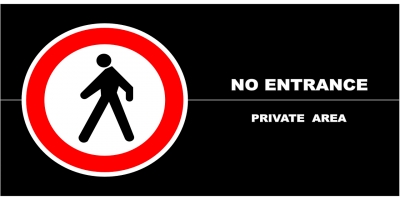New Law on Competition

On 3 July 2023, a new Law “On Competition” (the “New Competition Law”) was adopted. It will come into force on 4 October 2023 and will replace the existing Laws “On Competition” No. ZRU-850 of 6 January 2012 (the “Current Competition Law”) and “On Natural Monopolies” No. 398-I of 24 April 1997 (in the new edition). The following novelties are, among other things, brought in by the New Competition Law:
- new merger filling thresholds;
- new thresholds for determining whether a business entity or a group of entities holds a dominant position and the abolishment of the register of dominant undertakings;
- the introduction of a concept of superior bargaining power; abuse of such power is penalized in the same way as abuse of dominance;
- changes in exemptions related to anticompetitive agreements and coordinated actions;
- special rules for digital platforms;
- rules for the provision of state aid and rules for the creation and operation of enterprises with state participation;
- rules related to antimonopoly compliance;
- the right of the Committee for the Development of Competition and Consumer Protection (the “Competition Committee”) to impose fines on business entities (rather than just their managers).
A detailed description of the above changes is provided below.
1. MERGER CONTROL
The New Competition Law changes the thresholds for the merger filling, as follows:
2. DOMINANCE
The New Competition Law sets new thresholds for determining whether a business entity or a group of entities holds a dominant position:
Under the New Competition Law, the Competition Committee no longer has to maintain a special register of dominant undertakings. In practice, this implies that the Competition Committee will no longer have to include an entity in the register before investigating an alleged abuse of dominance. It is to note, however, that under the Presidential Decree “On the State Management in the Sphere of Competition and Consumer Protection” No. UP-108 of 7 July 2023, which was issued after the adoption of the New Competition Law (“Decree No. UP-108”), starting from 1 October 2023, the Competition Committee will maintain a specific register of business entities that have been granted exclusive rights (which, as provided above, is one of cases when a business entity or a group is considered to be dominant).
3. SUPERIOR BARGAINING POWER
A concept of “superior bargaining power” is introduced in the New Competition Law, which is defined as the ability of a business entity or a group of entities that does not have a dominant position to render unilateral influence on the determination of terms of a transaction, a territory of sales, and a price of goods (services). An abuse of superior bargaining power is prohibited in the same way as an abuse of dominance. As the concept is defined quite broadly, a more detailed regulation (enforcement guidance) in this regard seems to be needed to minimize risks of business entities. It is noteworthy that under Decree No. UP-108, starting from 1 October 2023, the Competition Committee is instructed to identify entities that have superior bargaining power. It is unclear whether this implies the creation of a separate register/list of such entities by the Committee.
4. PROHIBITED AGREEMENTS AND CONCERTED ACTIONS
In the New Competition Law, the concept of “concerted actions” is changed for the concept of “coordinated actions”. Coordinated actions are generally actions committed by two or more business entities without mutual agreement that satisfy the interests of each of the entities and that restrict competition or may lead to restriction of competition or discrimination of rights of consumers (i.e. essentially, cases of tacit collusion are covered by the concept). The concept of “anticompetitive agreements” generally remains the same and embraces all types of agreed anticompetitive actions.
The list of exemptions allowing to avoid liability for entering into anticompetitive agreements or committing concerted/coordinated actions has been shortened as follows:
It is also to note that under Decree No. UP-108, a lenience program is also established: a legal entity or individual who has entered into an anticompetitive agreement or participated in committing coordinated actions and has been the first to voluntarily report it to the Competition Committee is released from liability established by the competition legislation.
5. DIGITAL PLATFORMS
The New Competition Law introduces a concept of “digital platforms”, which are defined as information systems allowing paid or free use of digital products through the Internet. A digital platform operator having a dominant position is prohibited from taking actions that restrict competition by imposing requirements for the use of information, technologies, and digital products. More specific rules for determining whether a digital platform operator holds a dominant position as well as rules and procedures for identifying actions of a digital platform operator leading to restriction of competition are to be established by the Cabinet of Ministers.
6. STATE AID AND ENTERPRISES WITH STATE PARTICIPATION
The New Competition Law establishes a general legal framework for the control over the provision of state aid. Under the Law, the concept of “state aid” embraces tax and customs benefits, subsidies, grants, state guarantees, preferential loans, exclusive rights, sale and lease of state property at preferential prices, provision of rights to use land and subsoils on preferential terms, and other preferences and benefits. It is prohibited to provide state aid to specific business entities on an individual basis if that may have a negative impact on the competitive environment except for cases when the provision of such state aid is allowed by a decision of the President.
Drafts of regulatory acts envisaging the provision of state aid shall be submitted to the Competition Committee for the assessment of their impact on competition.
In addition, the New Competition Law sets some special rules for the establishment and operation of enterprises with state participation and entities affiliated with them. Under the Law, “enterprises with state participation” are legal entities wherein the state share exceeds 25% as well as state unitary enterprises and state institutions that have been granted the right to conduct business activities (we note that this definition diverges from the definition of “enterprises with state participation” given in the Law “On the State Property Management” No. ZRU-821 of 9 March 2023). “Entities affiliated with enterprises with state participation” are in turn defined as legal entities wherein 20% or more shares/participatory interest in the charter capital directly or indirectly belong to enterprises with state participation.
The creation, reorganization, and changing of types of activity of enterprises with state participation and their affiliates as well as the purchase of shares/participatory interest in business entities by state bodies and organizations that have the authority to grant licenses, to issue permits, to accept notifications through special electronic systems, to register or to carry out accreditation (“state bodies and organizations with regulatory functions”) and enterprises with state participation may only be done after obtaining a preliminary consent of the Competition Committee except for cases where this is done under a Law or a decision of the President.
The following is prohibited by the New Competition Law in respect of enterprises with state participation and their affiliates:
- the creation of relevant enterprises for operating in markets with developed competition, when five or more private business entities operate in a commodity or financial market;
- the creation of enterprises by state bodies and organizations with regulatory functions for operating in markets wherein such state bodies and organizations have the authority to grant licenses, to issue permits, to accept notifications through special electronic systems, to register or to carry out accreditation;
- the creation of an affiliate by an enterprise with state participation being a single supplier of goods (services) or having the relevant exclusive right or holding a dominant position if the activities of the created affiliate depend on relevant goods (services) or network infrastructure of the founder and if the affiliate compete with private entities (except for cases where new affiliates are created as a result of unbundling affiliates with ensuring equal competitive conditions);
- for enterprises with state participation, the engagement into activities unrelated to their main activity where competition is developed;
- for enterprises with state participation, the participation or purchase of shares/participatory interest in business entities that operate in markets with developed competition.
The relevant prohibitions do not apply where there is a relevant decision of the President or the Cabinet of Ministers.
7. ANTIMONOPOLY COMPLIANCE
The New Competition Law fixes a concept of “antimonopoly compliance”, which is defined as a system of internal organizational procedures for ensuring compliance of activities with the requirements of competition law, for identifying risks of violation such requirements, and for preventing these risks. The implementation of antimonopoly compliance is mandatory for:
- state bodies and organizations with regulatory functions;
- business entities that hold a dominant position in a commodity or financial market;
- legal entities whose average annual revenue from the sale of goods (services) over the past three years exceeds 100,000 times the BCV and wherein the state share is 50% or more;
- legal entities whose average annual revenue from the sale of goods (services) over the past three years exceeds 100,000 times the BCV and wherein 50% or more shares/participatory interest belongs to a legal entity wherein the state share is 50% or more;
- associations of legal entities.
Rules and procedures for implementing antimonopoly compliance are currently set in the Resolution of Cabinet of Ministers No. 114 of 2 March 2021.
8. FINES FOR LEGAL ENTITIES
Currently, violations of competition law are generally penalized by imposing minor administrative fines on individuals - officials of infringers. Under the New Competition Law, the Competition Committee has got the right to impose, among other things, the following fines on business entities:
- for entering into anticompetitive agreements, committing coordinated actions, or implementing external coordination of business activities of business entities by legal entities or individuals not related to these business entities leading to restriction of competition in a commodity or financial market - for business entities, in the amount of 5% of the revenue received from the sale of goods (services) in this market by each of involved business entities; for associations of legal entities, in the amount of 5% of the amount of received membership fees, in each case for a period of committing an offense, but not more than for the last three years;
- for abuse of a dominant position and superior bargaining power in a commodity or financial market, unreasonable increase of prices for socially and strategically significant products - for business entities, in the amount of 5% of the revenue received from the sale of goods (services) in a commodity or financial market for a period of an offence, but not more than for the last three years;
- for entering into transactions for merger, joining, or acquisition of shares/participatory interest in the charter capital of business entities without obtaining a preliminary consent of the Competition Committee, if required - in the amount of 1,000 times the BCV (approx. USD 28,465,48);
- for committing offences related to unfair competition (disseminating false information about competitors, misleading consumers, inappropriate comparison of goods (services), etc.) - in the amount of 2% of the revenue received from the sale of goods (services) in a commodity or financial market for a period of an offence, but not more than for the last three years;
- for failure to provide or untimely provision of information, the provision of unreliable or false information to Competition Committee - for business entities, in the amount of 50 times the BCV (approx. USD 1293,89).
Please click the below button to download the alert in a PDF version.













